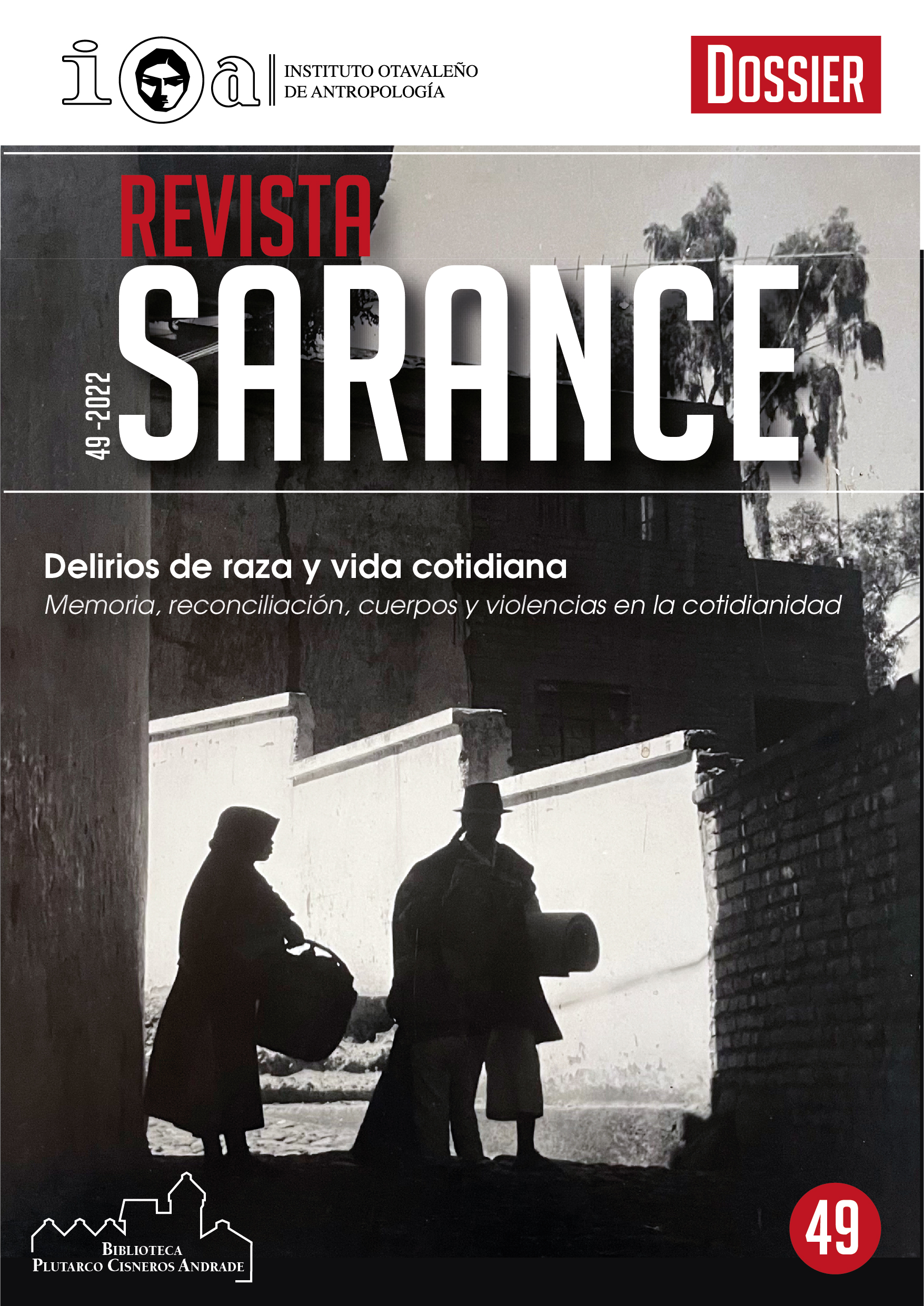Whitewashing race: Blanquita and the transgenerational replication of blackness in mass media, from television to YouTube
DOI:
https://doi.org/10.51306/ioasarance.049.01Keywords:
blackness, race , mass media, advertising, woke washingAbstract
Interstitial analysis is a cross-disciplinary perspective that focuses on exploring identity on the basis of flexibility and complexity, living with the contradictions, intricacies, and folds generated by the overlap of discourse and experiences lived within bodies (Dotson, 2014; Zurcir, 2020). From there, we will try to show how advertising appropriates the discourse of resistance movements to bring about transgenerational “whitewashing” in mass media that solidifies the systemic division of labor roles on the basis of race and gender. This whitewashing is based on the reaffirmation of white superiority, using whiteness as a role model and ideal (Echeverría, 2010) standard in juxtaposition to which stereotypes of blackness can be built. By blackness, we mean a social identity generated through “promotional strategies that depend on people and other symbolic and material representations that have been socially and historically considered black (ways of speech of pronunciations, folklore, style, fashion, music, body usage or physical form)” (Crockett, 2008, 246).
Downloads
References
Adorno, T. W. (2009). Crítica de la cultura y sociedad II. Ediciones Akal.
Authentic History Center. (2012, 20 de julio). Teaching diversity with multimedia: Imagery & stereotyping explained. Authentic History Center.
Bonilla-Silva, E. (2015). More than Prejudice: Restatement, Reflections, and New Directions in Critical Race Theory. Sociology of Race and Ethnicity, 1(1), 73-87.
Cole, T. (2012, 21 de marzo). The White-Savior Industrial Complex. The Atlantic. https://www.theatlantic.com/international/archive/2012/03/the-white-savior-industrial-complex/254843/
Crockett, D. (2008). Marketing blackness: How advertisers use race to sell products. Journal of Consumer
Culture, 8(2), 245-268.
DiAngelo, R. (2021). Fragilidad blanca. Del Oriente y del Mediterráneo.
Dotson, K. (2014). Thinking the Familiar with the Interstitial: An Introduction. Hypatia Special Issue: Interstices: Inheriting Women of Color Feminist Philosophy, 29(1), 1-17.
Dupont-Nivet, D. (2017, 13 de abril). Inside Unilever's Sustainability Myth. New Internationalist. https://newint.org/features/web-exclusive/2017/04/13/inside-unilever-sustainability-myth
Echeverría, B. (2007). Imágenes de la 'blanquitud'. En D. Lizárraga, A. M. Martínez de la Escalera, y M. Ortega Breña (Eds.), Sociedades icónicas: Historia, ideología y cultura en la imagen (pp. 95–114). Siglo XXI.
Ecuador, Defensoría del Pueblo. (2012). El pueblo afrodescendiente en el Ecuador. https://repositorio.dpe.gob.ec/bitstream/39000/64/1/IT-010-PUEBLO%20AFRODESCENDIENTE%20EN%20EL%20ECUADOR.pdf
Ethical Consumer. (2022). Unilever. https://www.ethicalconsumer.org/company-profile/unilever
Kappler, M. (2020, 16 de junio). Unilever Calls Out Racism, But Still Sells Skin-Lightening 'Fair & Lovely' Products. HuffPost Canada. https://www.huffingtonpost.ca/entry/unilever-skin-lightening-racism_ca_5ee79715c5b6cf93d4c85a22
Horkheimer, M. y Adorno, T. W. (1994). Dialéctica de la Ilustración. Editorial Trotta.
Klein, N. (2000). No Logo. El poder de las marcas. Ediciones Paidós Ibérica.
Mariner-Cortés, M., Meneses Pineda, L., Pérez Casanovas, A., y Rodríguez Estrada, D., (2020). Heridas fronterizas: Una revisión crítica de la identidad desde la intersticialidad, Sarance, 46, 67-38.
Mbembe, A. (2016). Crítica de la razón negra. Ensayos sobre el racismo contemporáneo. Futuro Anterior Ediciones.
Rivera Cusicanqui, S. (2014). Ch'ixinakax Utxiwa. Una reflexión sobre prácticas y discursos descolonizadores. Tinta Limón Ediciones.
Rivera Cusicanqui, S. (2018). Un mundo ch'ixi es posible. Tinta Limón Ediciones.
Sobande, F. (2019). Woke-washing: "intersectional" femvertising and branding "woke" bravery. European Journal of Marketing, 54(11), 2723-2745.
Tagg, J. (1988). El peso de la representación. Editorial Gustavo Gili.
United Nations. (2015, 18 de septiembre). Unilever chief honoured by UN for advocating more sustainable business models. https://news.un.org/en/story/2015/09/509222

Downloads
Published
Issue
Section
License
Copyright (c) 2022 Diego Rodríguez Estrada, Laura Meneses Pineda, Marc Mariner Cortés, Áger Pérez Casanova

This work is licensed under a Creative Commons Attribution-NonCommercial-ShareAlike 4.0 International License.
The authors retain the copyright and grant the journal the right of first publication; the terms are established in the Editorial Policy.
Revista Sarance does not apply any Article Processing Charges (APC).






